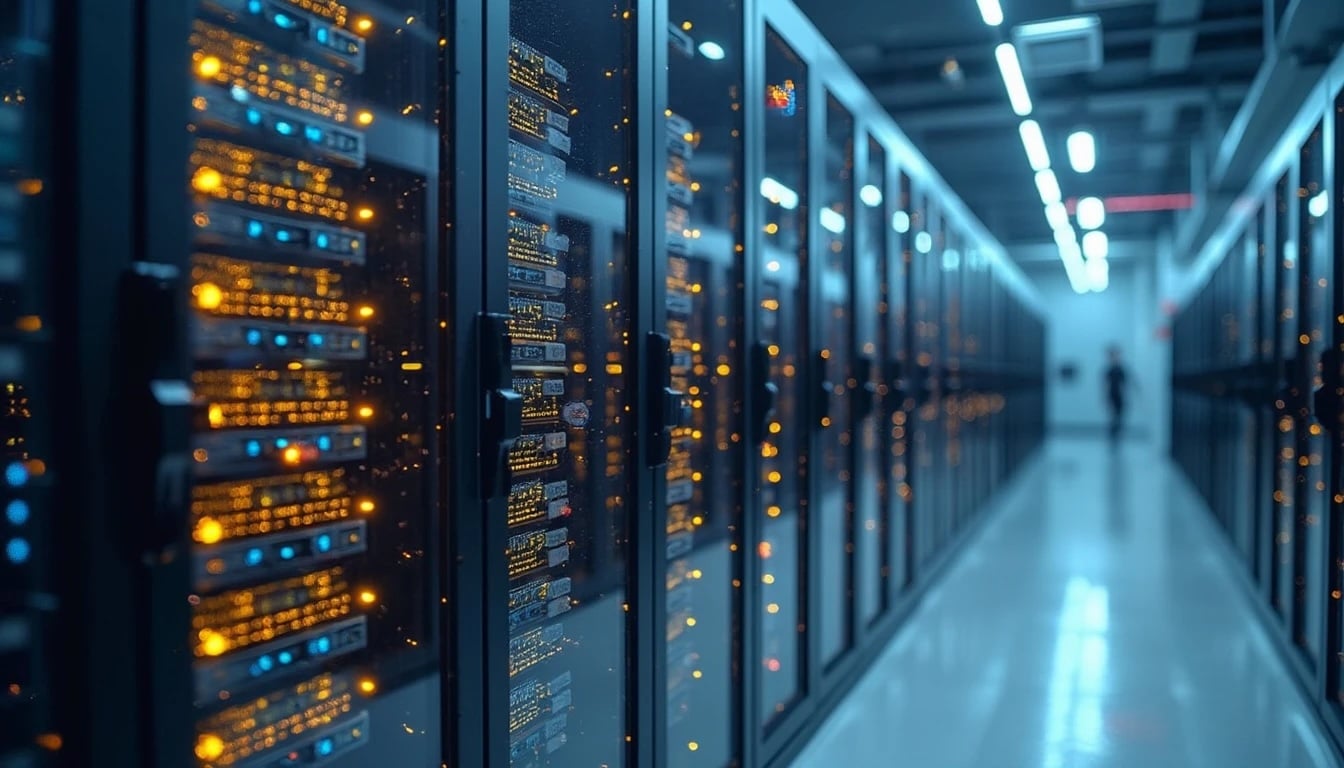In a world where data has become the new oil, the question is no longer if to protect it, but how to do so legally and verifiably. The General Data Protection Regulation (GDPR) in Europe, the National Security Scheme (ENS) in Spain, and international standards like ISO 27001 or SOC 2 require organizations to adopt robust security, traceability, and governance measures for information management.
In this context, certified data centers have become the critical infrastructure that sets apart compliant organizations from those exposed to hefty fines and loss of trust.
Record fines and increasing regulatory demands
The figures are clear:
In 2023, GDPR violations led to fines totaling €1.97 billion, including high-profile cases like Meta’s €1.2 billion penalty for illegal data transfers to the US.
Since GDPR’s enforcement began in 2018, the total penalties in Europe exceed €5.88 billion.
Companies like Uber were fined €290 million in 2024, reinforcing that compliance isn’t negotiable.
The lesson is obvious: hosting data on uncertified infrastructure not only jeopardizes security but also exposes organizations to incalculable reputational and financial risks.
The role of certified data centers
A certified data center offers physical and logical security, legal guarantees, verifiable audits, and standardized processes that help meet national and international regulations.
Key benefits include:
Auditable and traceable environments, enabling compliance proof during inspections.
Encrypted and controlled backups to prevent data loss.
Granular access management, with clear role and privilege definitions.
Physical and logical protection, covering biometric controls to energy redundancy.
Data sovereignty, ensuring information remains within secure jurisdictions, as required by GDPR.
Comparison of key data center certifications
| Certification / Standard | Main Focus | Level of Rigor | Key Benefits | Typical Sectors |
|---|---|---|---|---|
| ISO 27001 | Information security | High | Risk management, access control, operational continuity | All sectors |
| ISO 27701 | Privacy and data protection | Very high | GDPR extension, personal data process audits | Healthcare, banking, retail, SaaS |
| SOC 1 / SOC 2 / SOC 3 | Financial controls & security | Variable | Transparency, external audits, public/private reports | Finance, cloud providers |
| ENS (Spain) | Public sector security and providers | High | Availability, traceability, data sovereignty | Public sector & IT |
| Uptime Institute (Tier I-IV) | Resilience & uptime | Tiered (I basic – IV max) | Uptime guarantees (99.9%-99.995%), energy and network redundancy | Telecom, banking, cloud |
| PCI-DSS | Payment data protection | Very high | End-to-end encryption, tokenization, anti-fraud controls | E-commerce, fintech |
Digital sovereignty and competitiveness
Beyond regulatory compliance, data center certifications are a business competitiveness factor. In public tenders, international contracts, or B2B agreements, holding certifications like ISO 27001, ENS, or Tier IV can make the difference between sealing a deal or being left out.
The debate extends further: in a global landscape where most cloud and AI infrastructure is controlled by U.S. hyperscalers (AWS, Microsoft Azure, Google Cloud) or giants from China, Europe faces the challenge of protecting its digital sovereignty. This involves not only keeping data within the EU but ensuring it’s processed on infrastructure respecting local laws, avoiding critical dependencies on foreign providers operating under different regulations.
David Carrero, co-founder of www.stackscale.com/es (Aire Group), summarizes:
“Digital sovereignty isn’t just a theoretical concept; it’s a strategic requirement for Europe’s competitiveness. If European companies’ data ends up stored and processed in foreign jurisdictions, we lose control, legal certainty, and capacity for innovation. At Stackscale, we’ve been committed to private cloud infrastructure and bare-metal servers in top-tier data centers in Madrid and Amsterdam to ensure data remains under European regulatory frameworks like GDPR and ENS.”
Carrero also emphasizes that digital sovereignty connects closely with the rise of new private AI solutions, such as PrivateGPT, which require robust, secure infrastructures to train and run language models without outside dependency:
“More and more companies are asking us for environments where they can deploy AI privately, with absolute data control and no exposure risk. Here, certified data centers form the foundation: without this trust layer, building a resilient European AI ecosystem isn’t possible.”
Ultimately, digital sovereignty is no longer just a political issue but a competitive and resilience factor in a hyper-concentrated global market.
Conclusion
By 2025, operating without certified data centers constitutes a strategic risk. Certified infrastructure not only safeguards data but also provides trust, transparency, and legal backing to clients, employees, and partners.
The message is clear: compliance is no longer optional; it’s the minimum condition to compete in the digital economy.
Frequently Asked Questions (FAQ)
What certifications are mandatory for a data center in Spain?
There’s no single mandatory certification, but ENS (National Security Scheme) is required for public sector providers. Standards like ISO 27001 and ISO 27701 are highly recommended for GDPR compliance.What’s the difference between ISO 27001 and SOC 2?
ISO 27001 is an international information security management standard, while SOC 2 is an audit report issued by external auditors, often used in the U.S. Both can complement each other.What does it mean if a data center has Tier III or IV certification?
These are certifications from the Uptime Institute guaranteeing different availability levels: Tier III ensures N+1 redundancy (about 99.982% uptime), while Tier IV offers full fault tolerance (about 99.995%).Why is the physical location of the data center important for GDPR?
Because GDPR prohibits transferring personal data to countries without adequate protection, maintaining data sovereignty is key.What benefits does ISO 27701 provide over ISO 27001?
ISO 27701 extends ISO 27001 by adding specific privacy controls aligned with GDPR, demonstrating compliance in personal data protection.Does a certified data center automatically protect me from sanctions?
Not exactly. Certification reduces risks and simplifies audits, but ultimate responsibility for data management lies with the organization.

